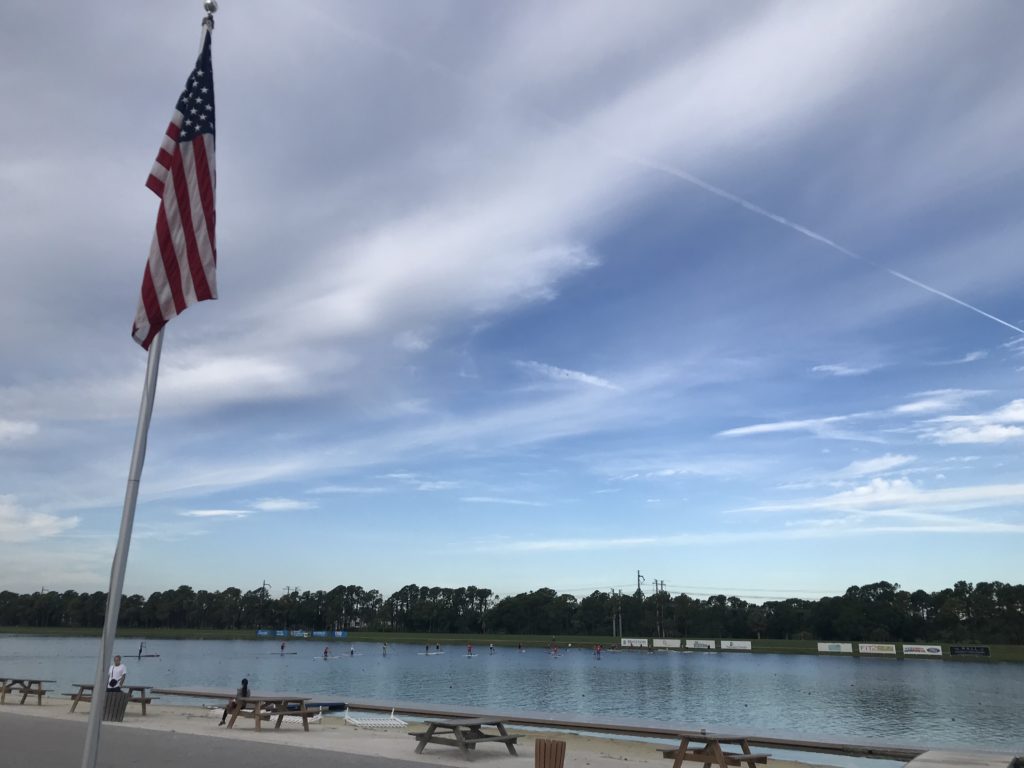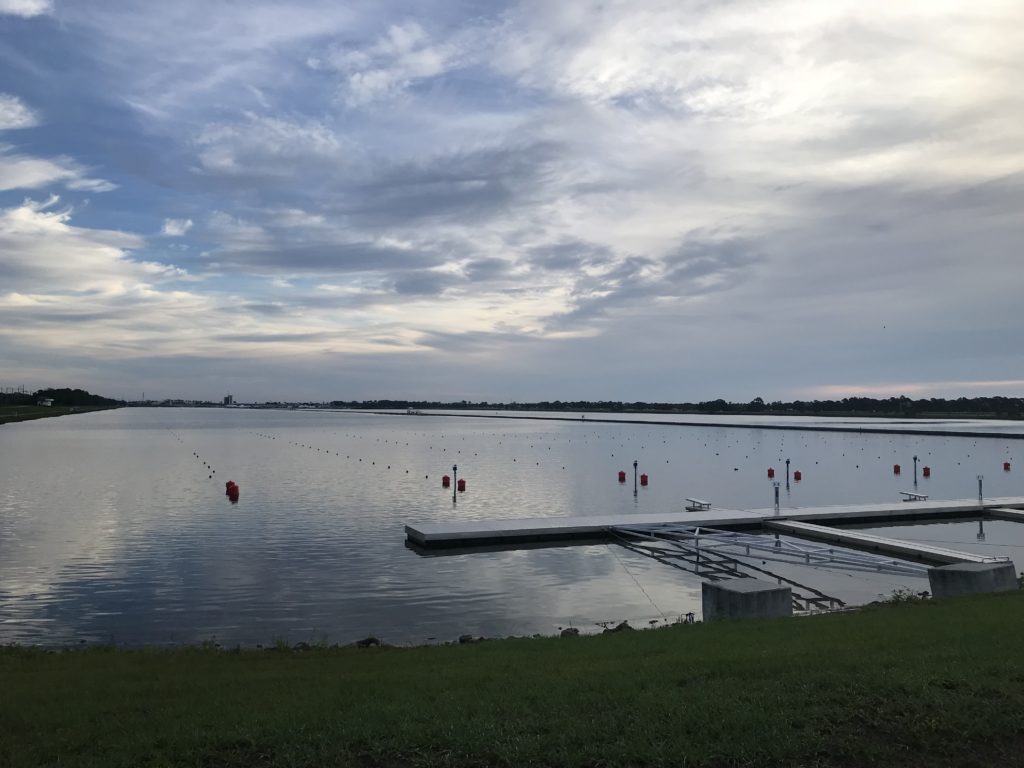I officially feel like I’m revisiting my early twenties! Well, that’s an exaggeration but there’s some truth to the sentiment too. I’m writing from the athlete house in Sarasota, FL. I’m here for a training block and have been staying in a house full of other rowers from out of town. The house sleeps eight but we’ve maxed out at five since I arrived in early May. Think: bunk beds, shared fridge space and somehow parking four cars in a driveway that’s meant for two. It’s definitely been quite a trip!



One of the athletes here is working her way through that scary first year of life after college and asked if I had any advice. The answer to that: Yes!
Pieces of Wisdom and Pearls of Advice
1. Have a clear vision.
In other words, know what you want and go after it! Immerse yourself in an environment that will support your dreams. Surround yourself with people who will help you, inspire you and push you to grow. To my 35-year-old self, this sounds simple. And kudos to all the 20-somethings who have a clear vision and are already busy with getting it done. When I finished college, I only had a vague idea of what was even possible to pursue in rowing, and my desire to race and train competed with everything I thought I was expected to do (i.e., graduate and get a “real” job). I tried to balance rowing with work and then rowing with grad school, and took years to fully and shamelessly commit to my goals.
The landscape in rowing is different now. The sport has exploded, and there are clear paths and specific clubs and programs meant to develop juniors, U-23s and pre-elites. Educate yourself on what’s available, and connect with coaches and rowers who have had past success. Ask questions. Think big. And get clear. Do you want to win Nationals? Race internationally? Stand on the podium at Worlds? When you know what you want, the way to move forward can start to take shape.
2. Prioritize strength.
And learn how to move! This will pay dividends. Strength, power and muscular endurance are key components of our sport. They impact our ability to accelerate the boat and correlate with overall speed. When developed and applied correctly, gains in the weight room mean gains in the boat and on the erg. Moreover, a solid foundation in strength is essential to preventing injury (which, by the way, is one of the keys to longevity in sport).
When I tore my hamstring, about two years after starting “elite-level” training, the designated cause was “overuse.” I’m sure there was some truth to that. Looking back though, I think that I was severely lacking the strength base needed to support the volume in the boat. Was I lifting? Yes. Was I lifting effectively? Based on what I know now versus then, no. Honestly, the first time I gained any meaningful strength wasn’t until starting CrossFit in 2012. Three years later, I worked with a new coach and spent an entire fall and winter season on lifting technique. Think: breaking down movements, working with lighter weight, and an endless number of back squats with a pause, butt to a wall ball each rep.
Work with a physical therapist or strength coach. At minimum, learn how to squat and pull weight off the ground. You’ll have an easier time staying healthy and set a solid base for getting strong. Plus, you’ll gain body awareness, which you can directly transfer to the rowing stroke—clearly a win all around!
3. Mix in with faster scullers.
There are two parts to this point. First, get into team boats with scullers who have more experience and boat feel. If don’t have opportunities to do this during coached practices, ask a veteran friend or teammate to go out for a spin on an off day. Then prepare to soak up as much information and insight as you can. Second, line up for pieces and even coordinate some steady state with faster scullers. Pick up on their habits and how they handle themselves on the water. More importantly, use the time to work on your mental game.
Early in my career, I shied away from coordinating with the faster, more senior women on my team. I was afraid of getting preoccupied with keeping up and subsequently losing focus on technical proficiency and change. This was a mistake. It requires mental discipline to stay on task when you’re falling behind. Plus, you naturally raise your own standards when surrounded by athletes with more skill.
4. Spend time on the water alone.
Balance the time in a group with plenty of time on the water alone. This is your time to think and test and feel without pressure or distraction. Play with your handle speed, or the timing and body position out of bow. Practice the path of your elbows. Feel your feet in the shoes. Every training program I’ve seen includes a healthy amount of recovery minutes. Unless you’re specifically training in the recovery zone for physiological adaption, think of these minutes as your time to play.
One of my first coaches in sculling would run technical sessions where we’d do no more than three to five miles in an hour and half on the water. The “Mike Naughton Special,” we would call these rows. We’d launch from Boathouse Row and row a mile up river, meeting at the Three Angels—one of the landmarks on the Schuylkill—for drills. Then, we’d sit and execute various progressions: e.g., finish to catch; then finish to catch with one stroke; then finish to catch with two strokes, etc. These practices were gold. It’s easy to get caught up in accumulating the most miles and minutes. But don’t forget the value (and enjoyment!) in going out for technical work, skill and drill.
5. Start early on self-talk.
Have you heard the famous quote:
Watch your thoughts, for they become words.
Watch your words, for they become actions.
Watch your actions, for they become habits.
Watch your habits, for they become character.
Watch your character, for it becomes your destiny.
There’s so much truth to the idea that we manifest what’s in our minds. And, with so much time to think in our sport, cultivating positive self-talk—the kind that helps you stay focused and happy and growing—is key. Pay attention to what you say to yourself in the boat, and before and after practice or racing. Notice how you interact with your teammates, and how you describe your rowing to family and friends. Sometimes we don’t even realize when we’re making excuses or reinforcing self-doubt and defeat. Case in point: I had a teammate who told me once that she never does well in pieces on Mondays. Hold up! This seems like an innocuous comment but she was setting herself up for a poor performance at the beginning of every single week!
I’m learning now that we can manipulate our minds just like we manipulate our bodies. Sport, in general, is always thought of as so physical. And the physical aspect—the moving and pushing our bodies—is probably what drew most of us in at the start. But the challenge of getting the best out of ourselves, be it in practice or racing or over the span of a career, requires so much more than just physical. The mental, emotional and spiritual aspects are real. The importance of self-talk and confidence is real. Cultivate self-awareness with each of these aspects in mind. Work on your self-talk. Set yourself up for success!
Happy rowing, my friends! Sending fast thoughts your way!


Great post Cara!! Love this advice — note taken! 🙂
Love this!!! ❤️✨?
Thanks, Jess! Can’t wait to train together again. Your enthusiasm and great attitude is contagious 😀 It’ll take you far – promise!
Thank you! Thanks for reading 😀